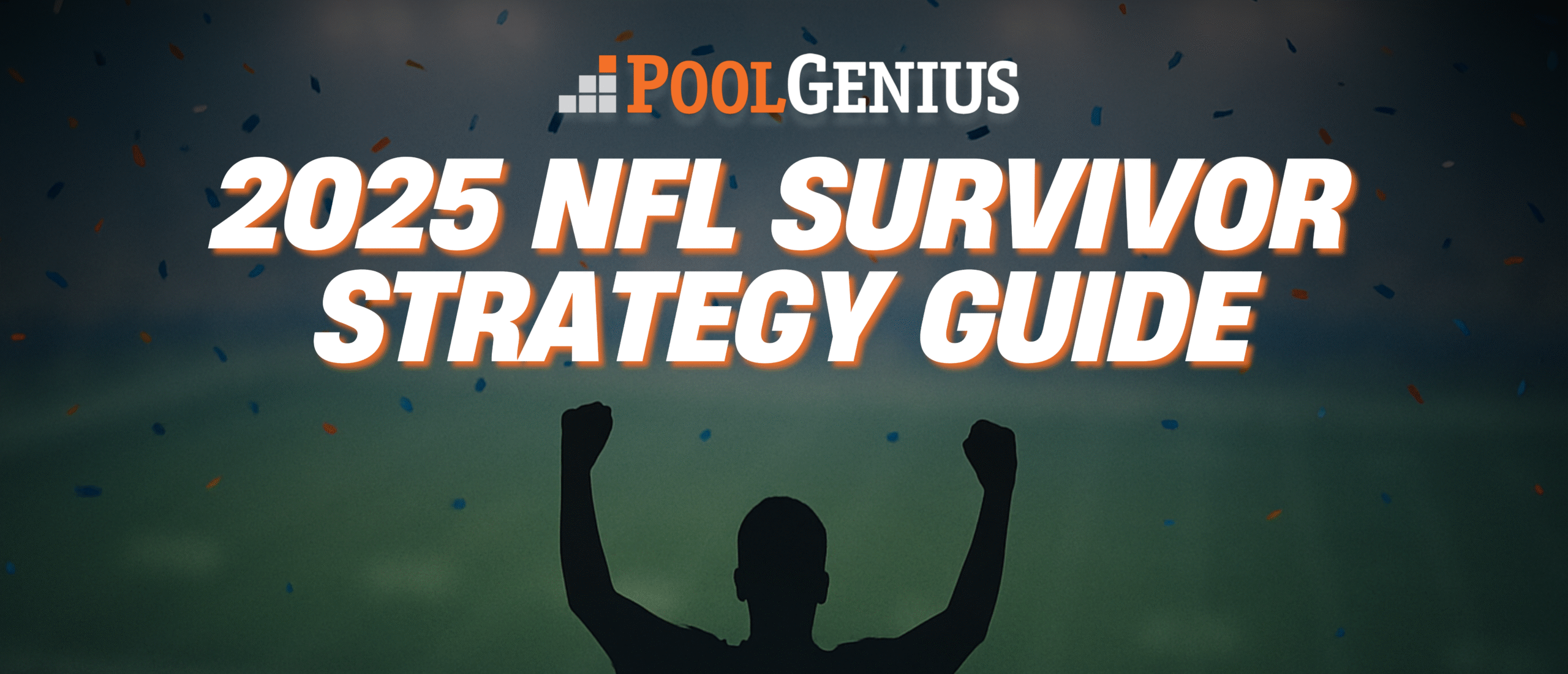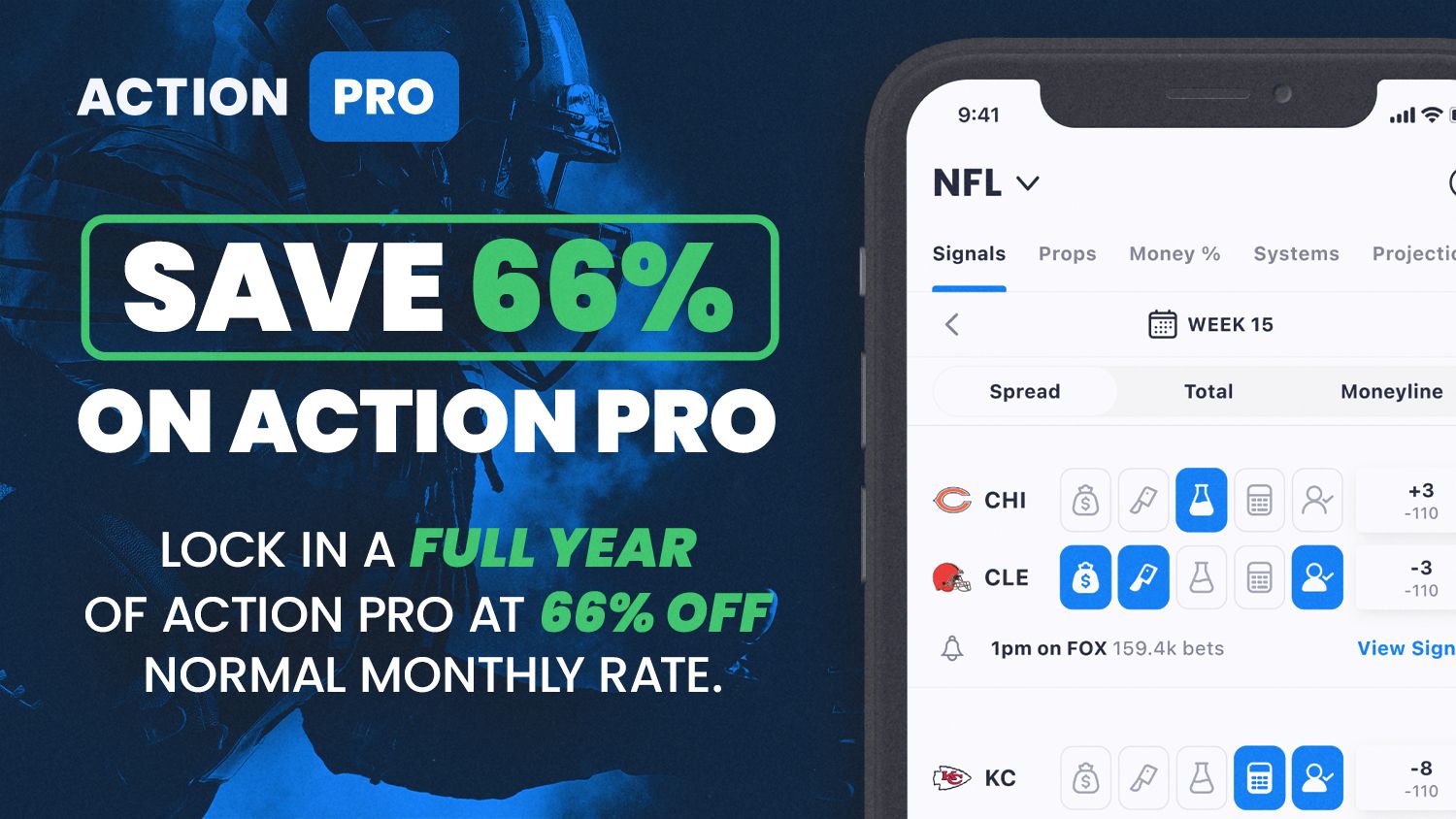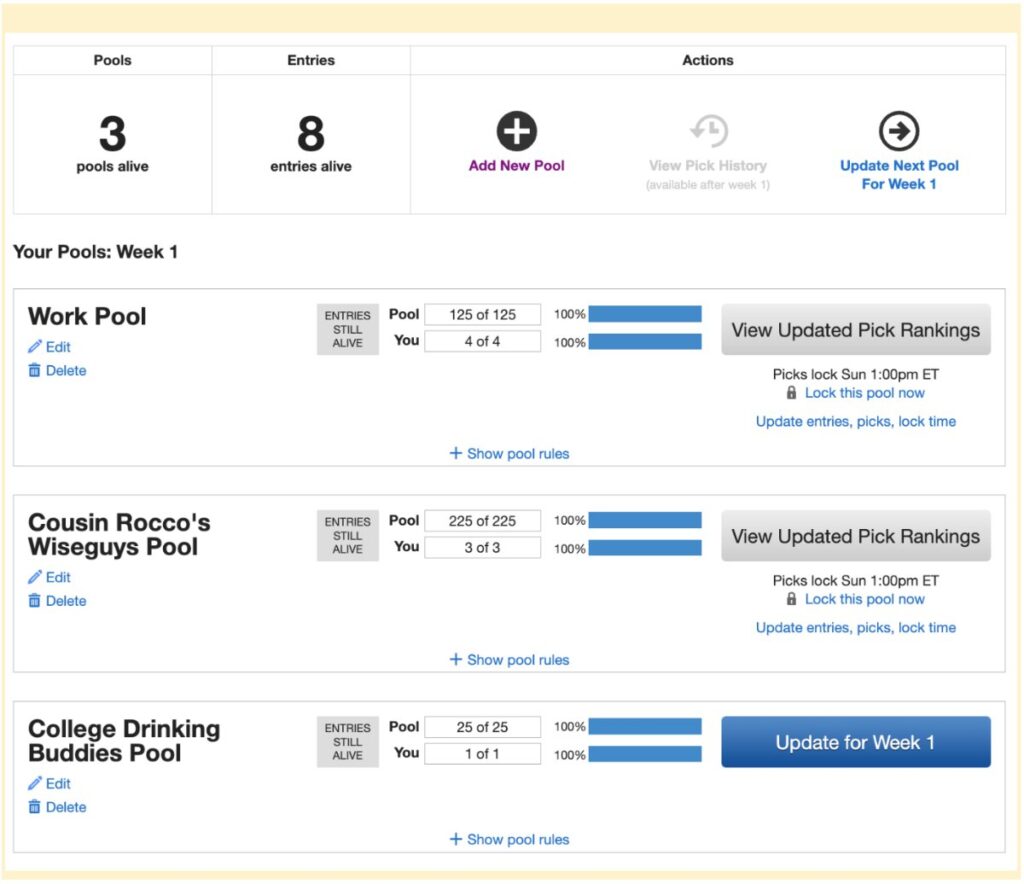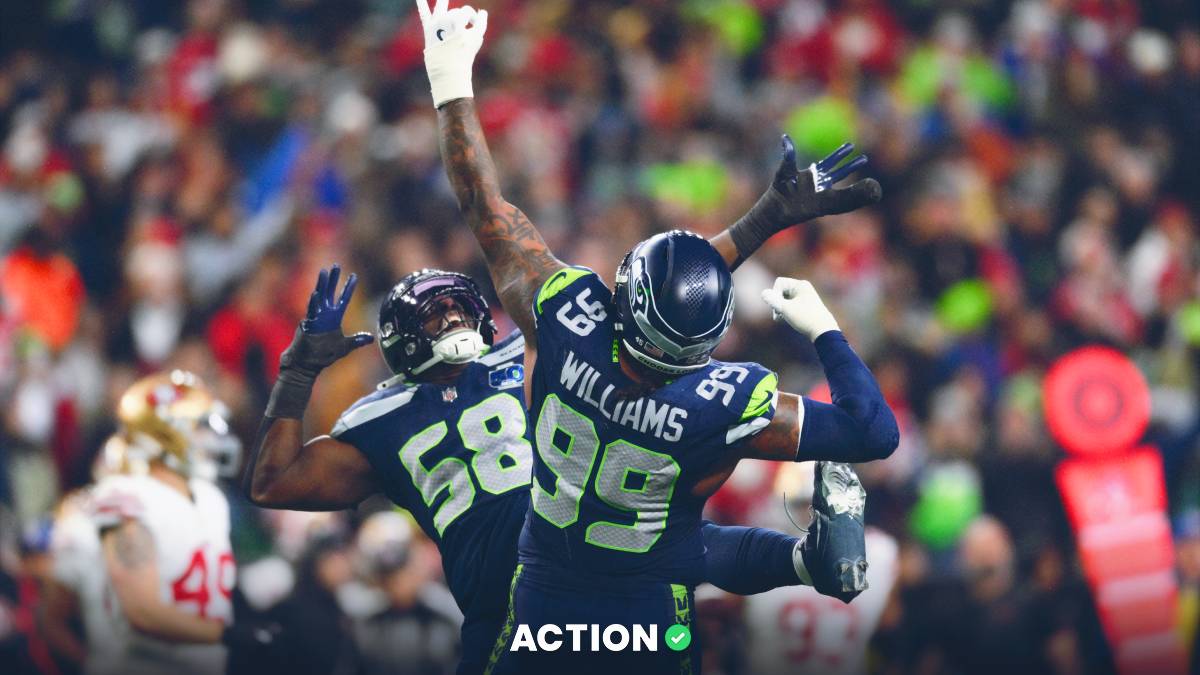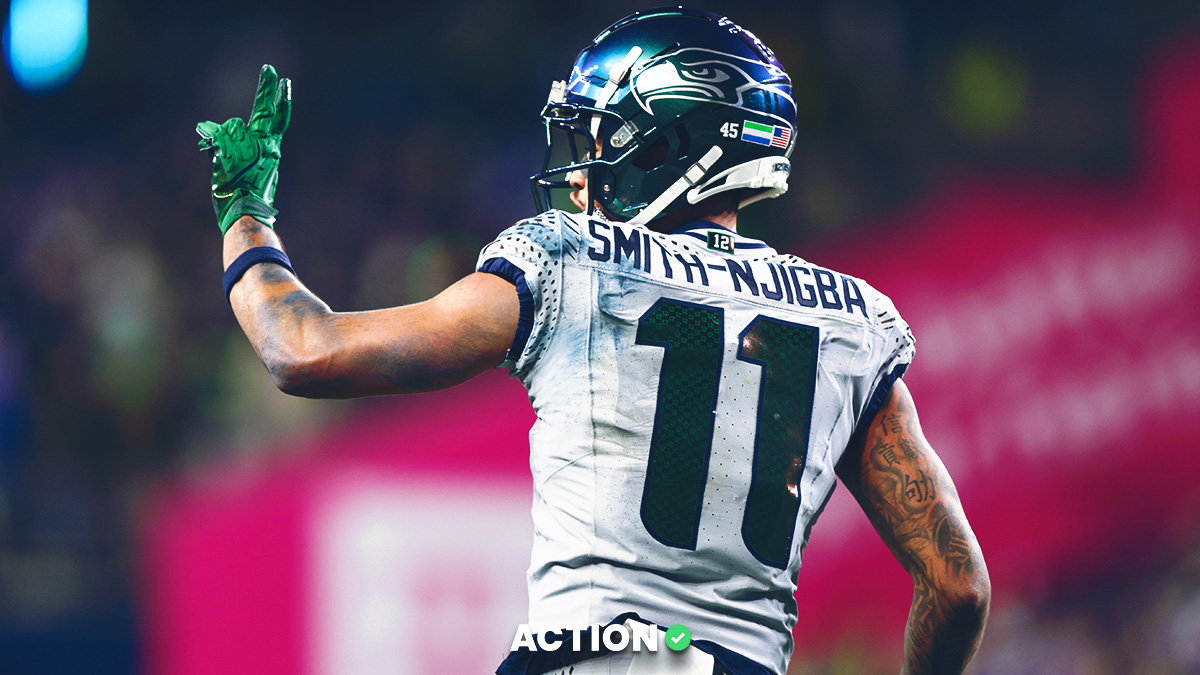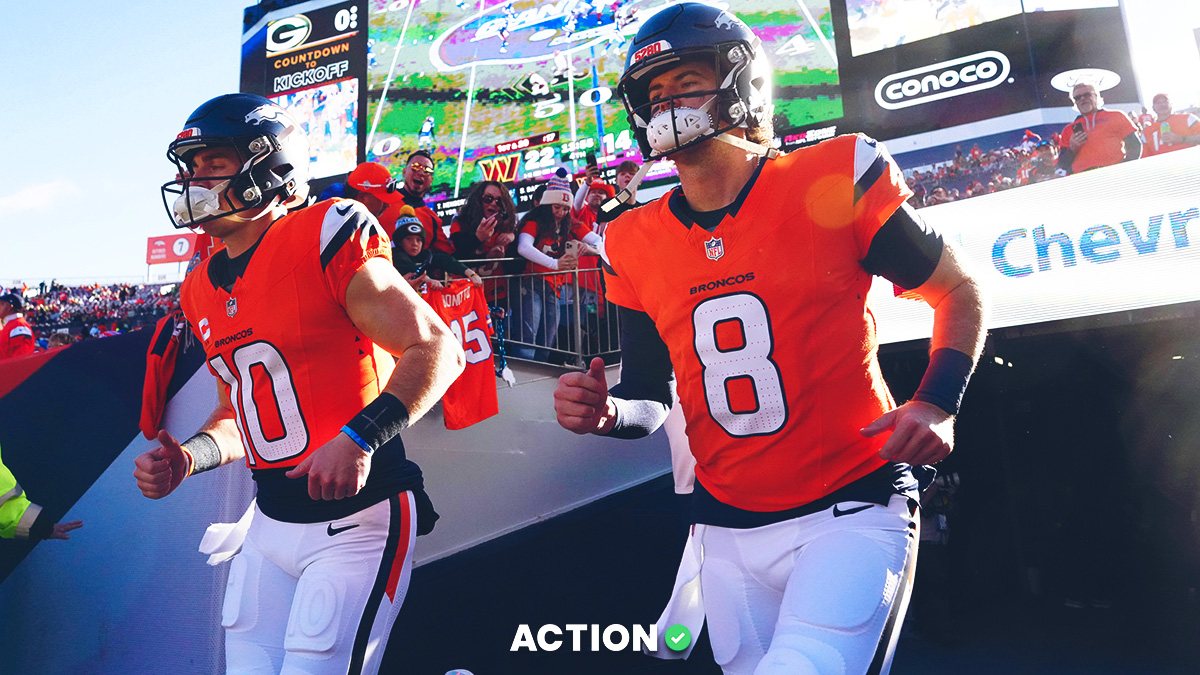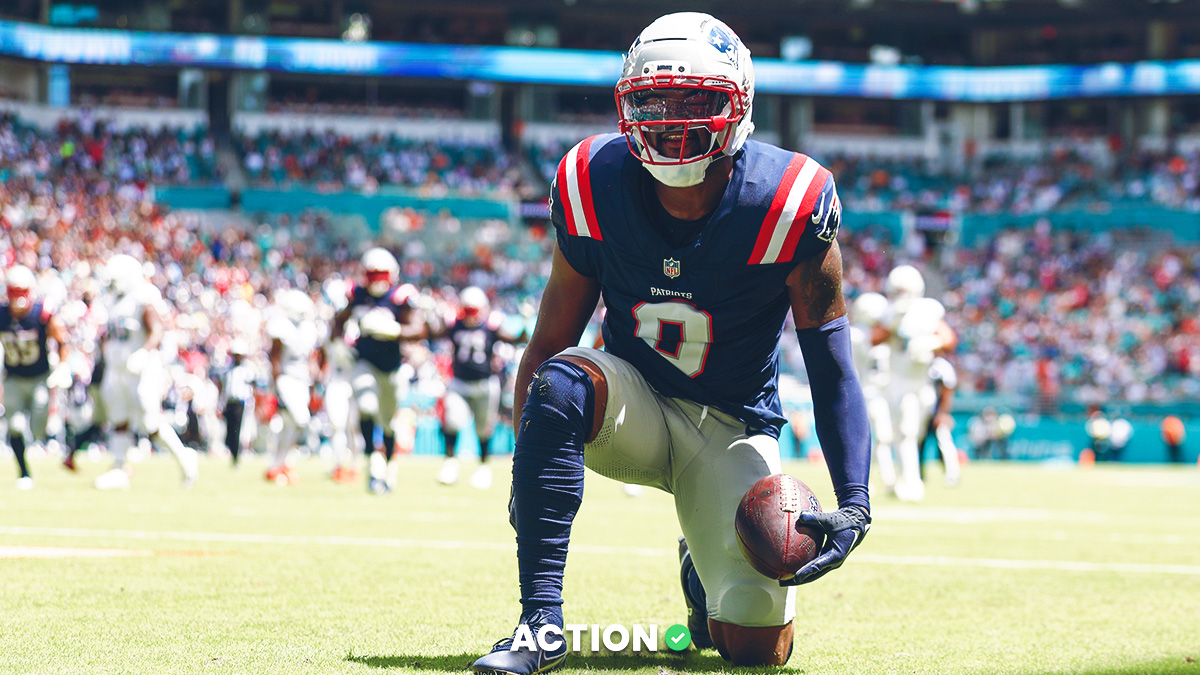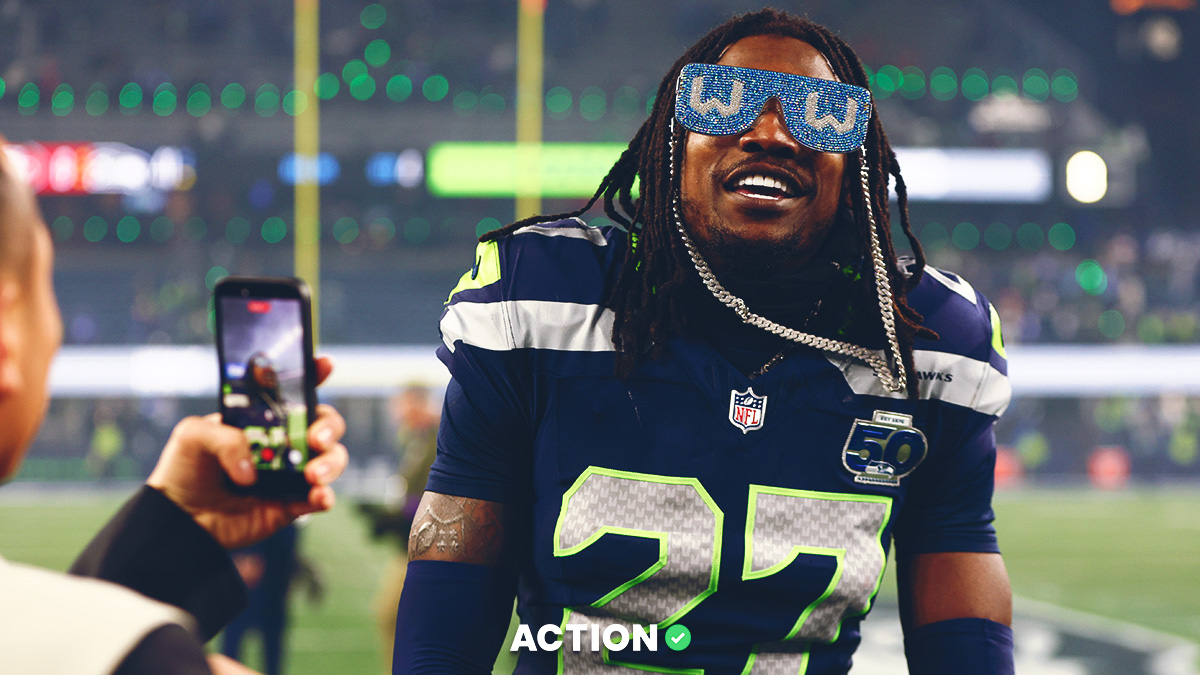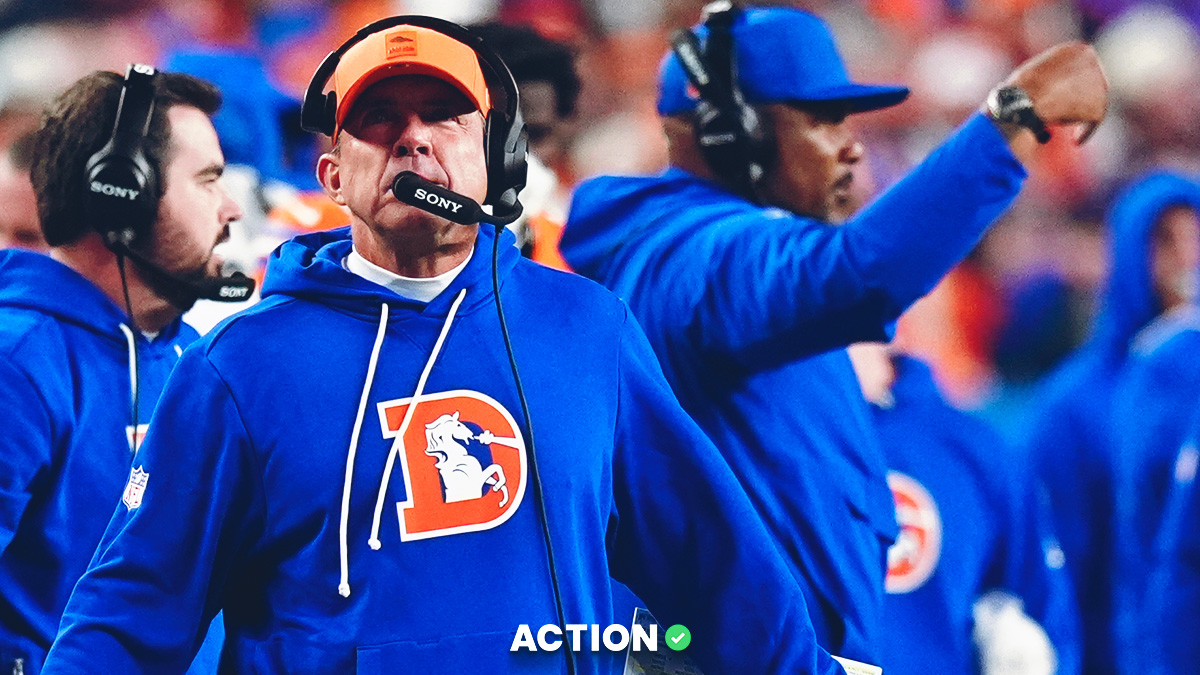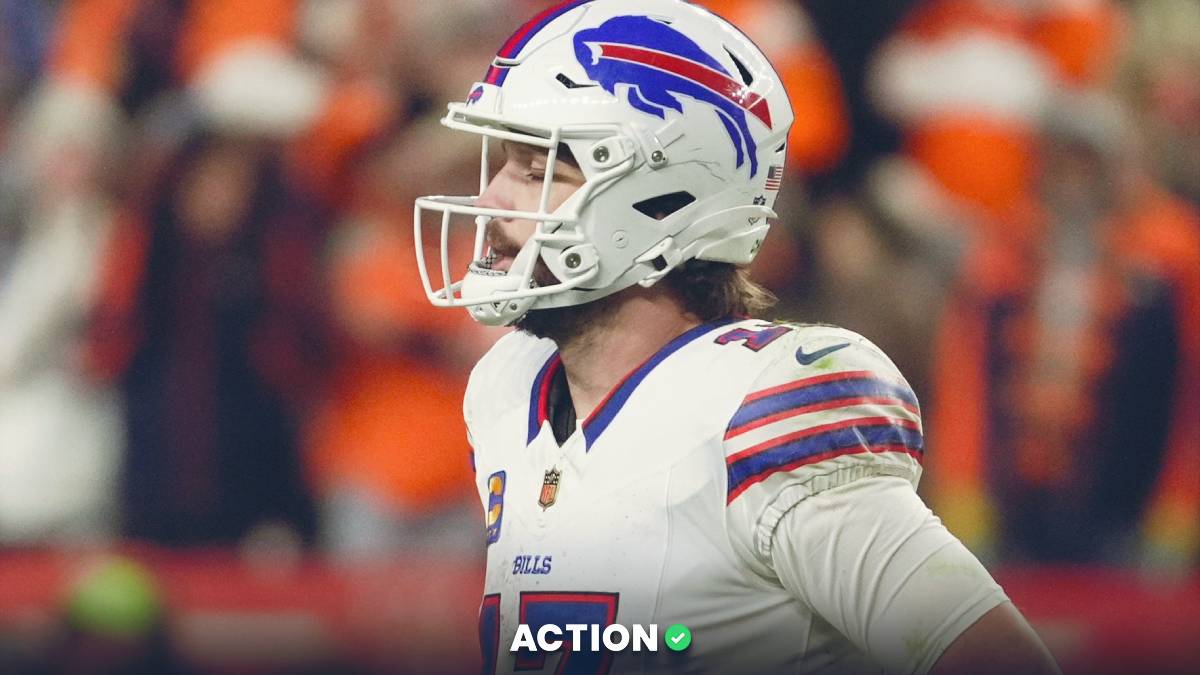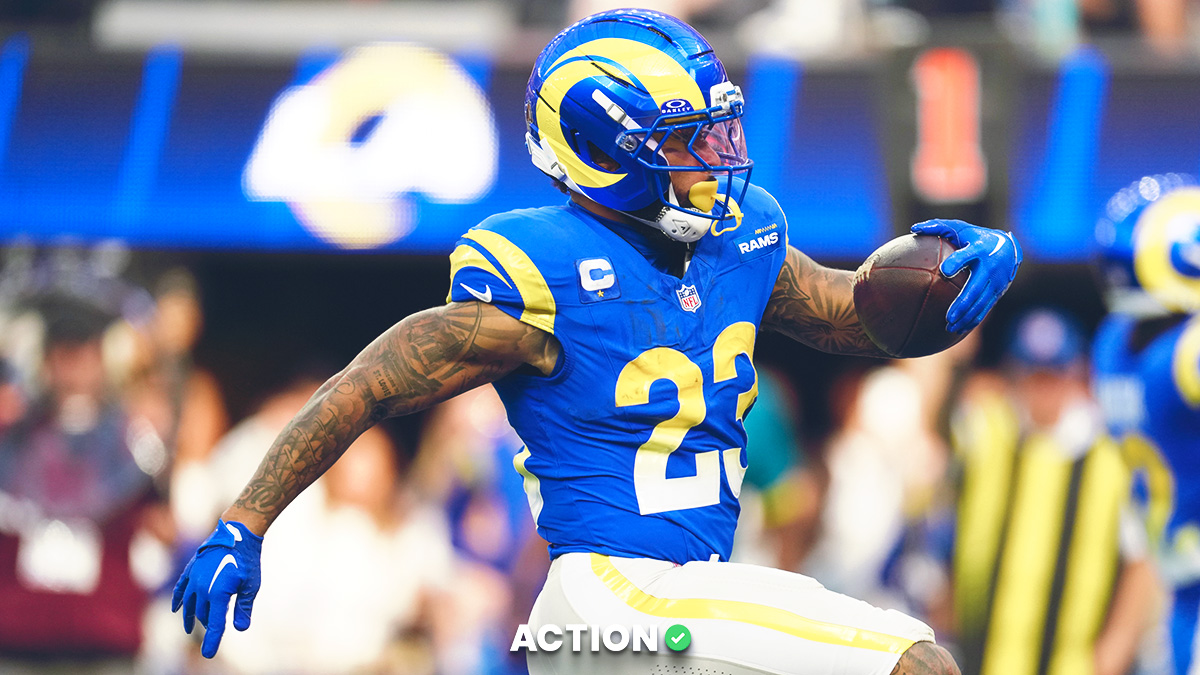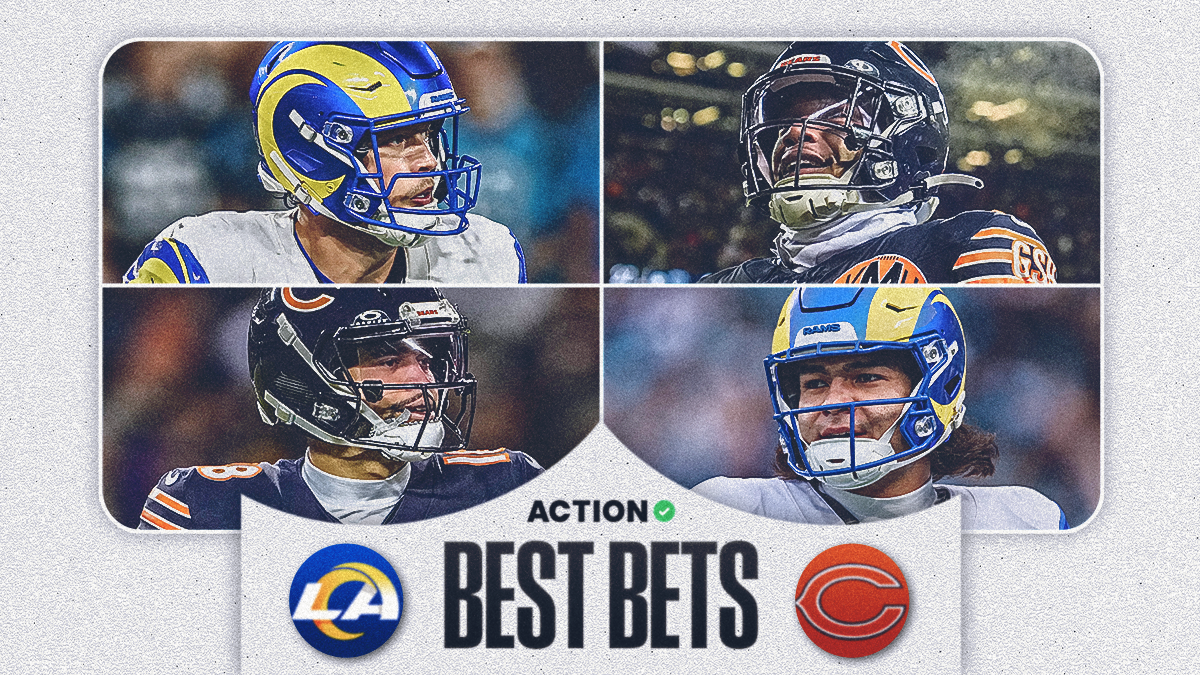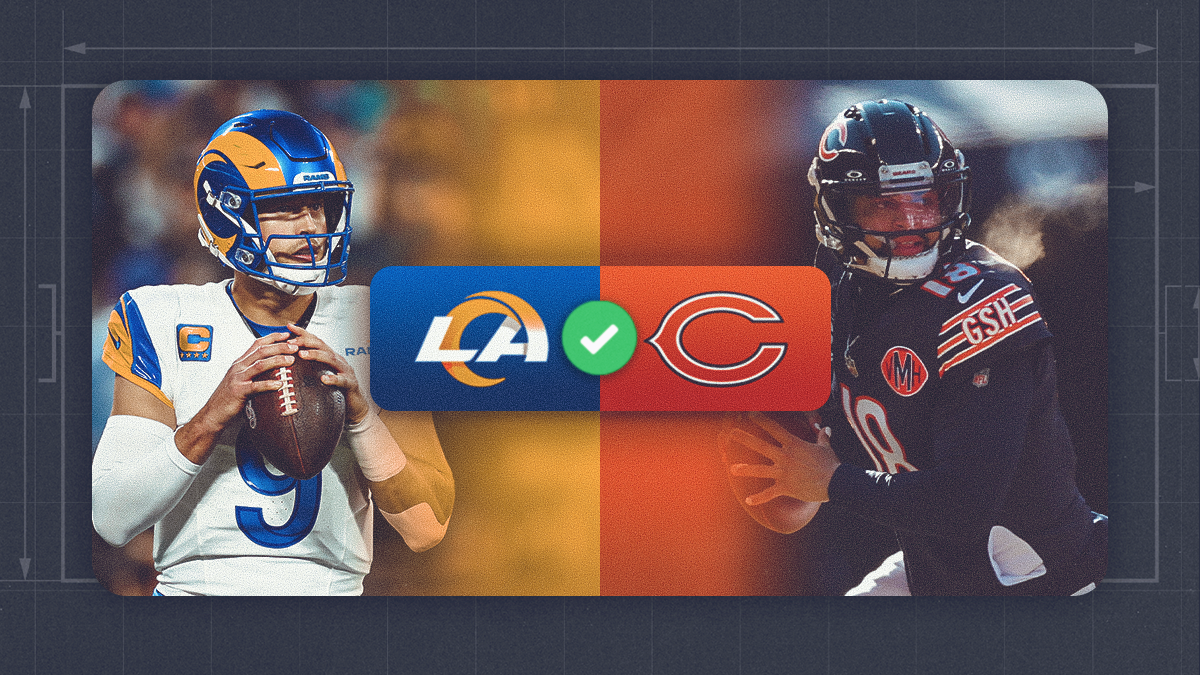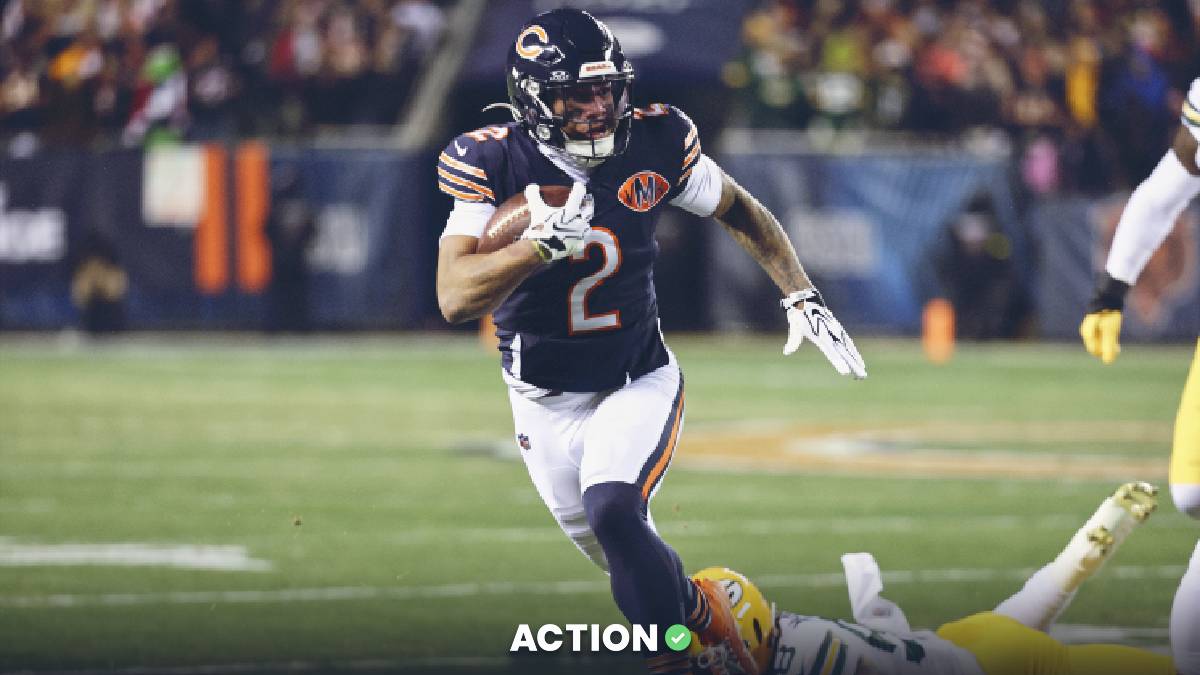This is a guest post by PoolGenius, the only site dedicated to helping you win more sports pools. Check out their NFL survivor pool picks and tools.
Note: All betting odds quoted in this article were accurate as of publication time.
NFL Survivor Pool Strategy 2025
Introduction to NFL Survivor Pool Strategy
NFL survivor pools — also known as eliminator, knockout, or last man standing pools — seem very simple in theory. First, you only need to pick one team per week. Second, your pick just needs to win its game (never mind covering the point spread) for you to survive and advance.
Yet one rule changes everything: in most survivor pools, you can only pick a specific team once. That single constraint transforms survivor pools into complex and challenging games. You can't repeatedly pick the best team in the NFL, or even the biggest favorite of each week.
Instead, you need to think strategically about how to craft the best sequence of picks through the 2025 NFL season, in the face of limited information and considerable uncertainty. And in order to win, you're going to need to take some calculated risks along the way.
The good news is that complicated games disproportionately favor skilled players. If you know what you're doing in NFL survivor pools, and if you understand how to evaluate the risks and potential rewards of every possible pick, you can double or even triple your odds to win.
However, you'll need three things to get to that level:
- An understanding of the key factors that drive survivor pool strategy
- The data and tools necessary to analyze picks in the smartest way
- The courage to take calculated risks when they present themselves
In this strategy guide, we’ll start by exploring some of the year-specific dynamics that survivor pool players will face in 2025. Then, we’ll dive into the strategy principles and data analysis methods that separate the pros from the Joes in NFL survivor pools.
Finally, we'll provide an overview of the relevant tools and data we offer at PoolGenius. Since 2017, our subscribers have won NFL survivor contests nearly three times as often as expected, and PoolGenius users have reported more than $10 million in prize winnings.
The 2025 NFL Survivor Pool Landscape
Every NFL season is different. To give yourself the best chance to win a survivor pool, you need to analyze the season-specific dynamics. For 2025, three considerations stand out.
The Projected Best NFL Teams In 2025
Identifying the likely contenders is the foundation of survivor pool strategy. Preseason forecasts are never perfect, but betting markets generally provide the most reliable guide. Based on Super Bowl futures odds, the projected landscape looks like this:
- Tier 1:Bills, Ravens — AFC contenders with favorable matchups.
- Tier 2:Eagles, Chiefs — Last season’s Super Bowl participants; tougher schedules but still offering strong survivor spots.
- Tier 3:Broncos, 49ers, Buccaneers, Rams, Packers, Bears — A step below, yet with favorable matchups and playoff potential.
These teams form the backbone of survivor pool decision-making. The challenge is not just knowing who they are, but when to use them.
In many cases, schedule matchups matter more than raw team strength. A strong team facing one of the NFL’s worst may provide better win odds than, for example, the Eagles against a league-average opponent.
“Future Value” Teams Will Tempt You Early
The 2025 NFL schedule shows just how often the elite teams dominate.
- Week 1: Denver opens as the biggest favorite.
- Weeks 2–18: Across 15 of the next 17 weeks, the weekly win-odds favorite is projected to be the Bills, Ravens, Eagles or Chiefs — except Week 9 (Rams vs. Saints) and Week 14 (Buccaneers vs. Saints).
This makes timing critical.
For instance, the Bills and Ravens are heavy Week 2 favorites against the Jets and Browns. Some players may even burn through all four Tier 1–2 teams in the first month — Eagles (Week 1), Ravens (Week 2), Chiefs (Week 3), Bills (Week 4). Based on win odds, that approach yields nearly a 40% chance of still being alive after four weeks.
But survival alone isn’t the goal — winning the pool is.
Using top teams early maximizes short-term survival, while saving them for later often creates a stronger long-term edge. Put another way, spending elite teams in September may help you survive the opening stretch, but saving them is often the smarter play if your real aim is to survive until December or January.
Week 17: A Late-Season Cluster
If your pool runs deep into the season, Christmas week could be particularly messy.
Unlike most weeks in 2025, Week 17 lacks a dominant favorite. Every other week features at least one team projected at 70%+ win odds and at least four teams above 65%.
In Week 17, the leaders are:
- Chiefs (67%) vs. Broncos
- Commanders (65%) vs. Cowboys
- Bengals (64%) vs. Cardinals
- Titans (64%) vs. Saints
- Steelers (62%) at Browns
At the same time, other top teams are tied up in difficult matchups — Eagles vs. Bills, Ravens at Packers and Lions at Vikings. Kansas City is unlikely to be saved for this week, which increases the viability of options like Tennessee.
Still, pool dynamics shift as the season unfolds. A breakout team could emerge as the “safe” play, but that usually fuels a herd effect, where the popular choice becomes overused, and fading it creates more leverage. (Last season’s Colts vs. Giants in Week 17 was a textbook example.)
| Get Survivor Picks Now |
|---|
| NFL Survivor Picks from PoolGenius |
| Season Discounts via Action Network |
| Free Trial Offer (Survivor, Pick'em, Betting) |
Two Traits Of Sharp Survivor Players
Now that we've identified some of the season-specific dynamics facing survivor pool players in 2025, let's review some of the more general concepts of winning survivor pool strategy.
We'll first cover a couple qualitative attributes of sharp survivor players, then we'll dive into the quantitative data and analysis that drives their edge.
Customize Picks For Your Pool's Characteristics
Just like no two NFL seasons are the same, no two survivor pools are the same. Details like the total number of starting entries, the rules, the relative sophistication of the people who enter, the size of the prize pot, the past picks that each surviving entry has made, and even the weekly pick submission deadline are all factors that can differ from pool to pool.
What less skilled players don't realize is the degree to which these kinds of characteristics impact optimal pick strategy. In short, there’s no such thing as a universal "best survivor pick" for any given week, because it varies from pool to pool, and even from entry to entry within a pool.
For example, standard survivor pool rules require one pick per week, but some pools (especially larger ones) require double picks in later weeks, or maybe in earlier weeks, too. That rule twist not only reduces your chances of surviving the season but also alters your pick strategy in early weeks. You need to plan for the future even more so than in standard pools, to ensure you have enough viable pick options down the stretch when double picks kick in.
Similarly, pools that allow "strikes" or "buy-backs," enabling you to stay in the contest after an initial loss, also require a different approach to pick planning.
Another key strategy factor is pool size. For example, the best pick for a pool with thousands of entries still alive as of Week 8 will often differ from the best pick for a pool that's down to 10 entries remaining. In the bigger pool, you're most likely going to have to survive the season to win. The smaller pool is unlikely to last beyond Week 14 or 15, so there’d be no wisdom in saving a team with a juicy Week 16 matchup.
Have Reasonable Expectations
Besides understanding how a pool's characteristics influence strategy, sharp players recognize the incredibly risky nature of NFL survivor pools. As a result, they don't abandon a sound long-term pick-making process based on some poor short-term results.
Here's a fun fact most people don't know. In the past decade, over half of all survivor pool entries nationwide have been eliminated by the end of NFL Week 4. That isn’t an average; it’s happened every season for the last ten years. It's also unsurprising if you just do the math.
Even if you pick a team with a 75-80% chance of winning each week (and it’s rare to find better win odds than that in today's NFL), your chances of picking three winners in a row are roughly 50/50. You should expect to do better than that in some years, and worse in other years.
So you shouldn't participate in NFL survivor pools unless you're prepared for the expectation of losing entries as early as Week 1 or Week 2. And when you hear someone claim that they've been playing in survivor pools forever and "always" or "usually" make it to at least Week 10 or 11, call out their BS immediately.
Playing like a pro in survivor pools requires you to understand and respect probability, and to accept the fact that two realities are beyond your control:
1) The odds of winning any survivor pool, especially bigger ones, are stacked against you to a huge degree. Even the best players may not realize winnings for years at a time, so patience is required. The pool wins come infrequently, but when they do come, they more than make up for many years of not winning.
(Important side note: You shorten the expected dry spells between pool wins by playing multiple entries and/or in multiple survivor pools each year, which most serious players do.)
2) No team is ever a lock to win. Especially in the NFL, top teams lose to bottom dwellers more often than most people think. When even the "safest" pick of a week can have a 1-in-5 (or greater) chance of losing, you must always be mentally prepared for your pick to lose.
What you can control is making the most advantageous pick(s) each week, and sticking to that strategy over the long term—even when you're running cold for a few years.
The Data The Pros Use To Win More Pools
Now let's delve deeper into the objective data that should guide your weekly survivor pick decisions, if your goal is to maximize your odds to win your pool.
We're going to get a bit nerdy here, but we do so unapologetically. Survivor pools are complicated enough that you can rarely get to the right answers based on gut instinct or even back-of-the-envelope level math. That's especially true once you get deeper into a season, and if you're playing a portfolio of multiple entries.
We'll start by reviewing the data you need to identify the best picks of the current week: pick popularity and win odds, which together determine Expected Value, or EV. Then we'll explore Future Value, a key metric for advance pick planning.
Pick Popularity: Why Unpopular Picks Are Good
Never forget that in order to win a survivor pool, you need your pick to win while the picks all of your opponents make lose. That can't happen if you all pick the same team.
On a more micro level, your expected winnings from a survivor pool increase when you survive a week and at least one of your opponents loses an entry. As a result, opportunities to avoid the crowd without significantly increasing your elimination risk can be incredibly valuable.
Identifying those opportunities requires that you project (with reasonable accuracy, at least) the teams that your opponents will end up picking. That may sound like a time-consuming, next-to-impossible task, but fortunately perfection isn't the goal.
As a start, you can often infer which picks are likely to be the most popular picks in your pool by reviewing pick popularity data published by survivor pool hosting sites like Yahoo! and ESPN.
(More recently, this data is getting a bit harder to find, and we're often surprised at the differences from site to site. As a result, our NFL Survivor Picks product combines data from multiple hosting sites into a more balanced index of expected pick popularity.)
From there, you can potentially apply some adjustments based on your knowledge of your specific pool and/or opponents. For example, if you know that 90% of the entries still alive in your pool have already picked the 49ers, but 20% of entries nationally are picking the 49ers in the current week, then it will be impossible for your pool to reflect the national average.
Win Odds: Why Not All Popular Picks Are Bad
While you should often try to avoid very popular picks, there’s no hard and fast rule. In fact, the most important rule when it comes to survivor pool strategy is to always be skeptical of any advice that sounds too absolute. (Looking at you, "never pick a road team.")
The simple advice to "always avoid the most popular pick of the week," which we've seen published elsewhere, may be well-intentioned. However, reality is more nuanced. The best pick almost always depends on multiple factors, including elimination risk, which is quantitatively expressed as win odds—the percentage chance that a team wins its game.
Multiple sites publish computer-generated win odds for every NFL game, though it pays to track their long term accuracy, and averaging win odds from a few top systems may improve overall accuracy. Also, free online odds converters can translate a sportsbook's moneyline odds for a team into an implied win probability. Just be aware that moneyline odds include "juice" from the sportsbook that needs to be adjusted out in order to get true implied win odds.
In survivor pools, it's crucial to evaluate a team's win odds in relative terms as well as absolute terms. For example, win odds of 75% or better are great in the NFL; they don't often get much higher than that. However, if three different teams have 70-75% win odds in a given week, then picking one of them may not confer much advantage over most of your opponents.
In comparison, picking a team with 75% win odds, while most of your opponents can only pick a team with win odds of 65% or less, puts you in a great spot.
So the key question is not just, "How risky is picking this team?" Instead, it's "How does my chance of elimination change if I pick this team, compared to choosing another safer alternative if one is available, and compared to the teams most of my opponents will be picking?"
Expected Value: Measuring Risk vs. Reward
In a given week, a team's pick popularity and its win odds need to be evaluated in tandem, because a natural tension typically exists between them. Teams with higher win odds (good) are usually more popular picks (bad), and vice versa.
Enter Expected Value, or "EV" for short. In survivor pools, EV is a single number that represents an overall "risk vs. reward" rating for every possible pick in a given week.
EV is typically centered around the number one (1.00). An EV greater than 1.00 signifies a good pick (more technically, a pick that will increase your expected winnings from the pool), and an EV less than 1.00 signifies a bad pick (one that will decrease your expected winnings).
The math behind EV considers every possible outcome scenario in a given week. For instance:
- In some outcomes, your survivor pick wins, but your expected winnings don't increase by very much because nearly all of your opponents' picks also won.
- In other outcomes, you strike gold when your pick wins and several popular picks you avoided that week all lose. Your expected pool winnings skyrocket.
- There are many potential outcome scenarios in between these two extremes.
When all the scenario calculations are done, picking the team with the highest EV will maximize your expected winnings from your survivor pool. That pick provides the best balance of risk and reward out of all the options available in the current week.
(One practical challenge is that calculating survivor pick EV is not easy. Our NFL Survivor Picks product not only calculates EV for every possible pick, but also adjusts each team's EV based on your specific pool's characteristics, which impact the math.)
Future Value: Playing The Long Game
EV-driven pick strategy is crucial if you want to win more survivor pools in the long run. Still, it's not a silver bullet on its own, because it only considers the current week.
Ideally, you want to maximize the total combined EV of all the picks you will need to make until your survivor pool ends (hopefully, when you win it). In bigger pools with 1,000 or more entries, you'll probably need to survive the entire season to win. In smaller pools, the total number of picks you will need to make can be estimated based on the number of entries left.
In practice, maximizing EV across a series of future picks requires projecting win odds and pick popularity for every team, in every future week. Then, you can calculate projected EVs for every future week, and use those projections to guide your current week pick decisions.
For example, the Ravens might be the biggest favorite in Week 2 of the 2025 season when they face the Browns. Baltimore will likely be a popular survivor pick, but its win odds may still be strong enough to make them a high-EV choice. The key question is whether the Ravens’ EV is even higher in a future week — say Week 12 against the Jets — when your pool will almost certainly still be active. In that case, saving them could be the better long-term play.
Last year provided a perfect illustration, again involving the Ravens. In Week 2, they were the biggest favorite on the board against the Raiders, yet they lost outright, wiping out large portions of survivor pools. Players who had held off and saved Baltimore for later in the season gained a major edge: by the time they used the Ravens, win odds were still just as high in some weeks, but pick popularity had dropped, creating a far higher EV opportunity.
Estimating a team's overall future value is still based on data and math, but the calculations rely on lots of informed assumptions about the future. So the process involves both art and science, and different approaches may yield at least slightly different conclusions. It's also no easy feat, because while future win odds are somewhat easy to find, projecting future pick popularity is much more difficult and time-consuming.
Still, the downsides of all this effort and uncertainty are counterbalanced by the strategic benefits of future pick planning. Understanding your best chances to engineer high leverage, contrarian pick opportunities in future weeks — even if not all of them pan out — is a true badge of survivor pool pros. Especially if you're all but certain that you will need to survive the season in order win your pool, it's silly not to plan for it from the very beginning.
In our NFL Survivor Picks product, a team's Future Value is a single numerical metric driven by future week EV projections, but also influenced by pool-specific characteristics that impact how much longer a pool is expected to last (e.g. the total number of entries still alive, whether or not it requires double picks in future weeks).
We then determine our customized survivor pick rankings for a given week by considering both current week EV and Future Value for the subscriber's pool in question.
Crystal Ball Not Required
Many survivor pool players discount future week pick planning because the future is never 100% certain. "It's not even worth thinking about Week 10 or Week 14," they posit in Week 1, "because things in the NFL might look completely different in November or December."
Of course, there is always a chance that a top team loses its star quarterback, or that a struggling team suddenly turns things around in another two or four or eight weeks. But survivor pool strategy requires taking risks and being comfortable with uncertainty, and the potential rewards of reasonably intelligent future pick planning can be game-changing.
Plus, the future of an NFL season is not nearly as unpredictable as some people make it out to be. More often than not, a team that was expected to be good before the regular season started, and has been good in the early weeks, is likely to still be good in a month or two. The exception cases that happen each year just tend to get a lot of attention.
On balance, basing your pick strategy on mostly correct assumptions about the future will most likely still be a net plus. It's certainly a much better strategy than not planning at all for the future, and ending up in a very tough spot that could have been avoided.
The opposite case can also be just as bad. Let's say you decide to save a team for a relatively easy matchup in Week 10, without also projecting future pick popularity. Then Week 10 arrives, only for you to discover that 45% of your opponents had the same idea, and making that pick is now a sub-1.00 EV decision.
In general, teams with the most Future Value tend to project as big favorites in multiple games throughout the season, but also have high pick popularity in an early week or two. In those cases, players who overvalue safety, don't understand EV, or think the future is completely unpredictable will lean toward taking the "sure thing" early.
That bias can set up high-EV future pick opportunities for players willing to take on a bit more elimination risk at the beginning of the season.
Strategy Study 1: Philadelphia Last Year
Now that we've reviewed the objective data that sharp survivor pool players use to maximize their edge (pick popularity, win odds, EV, and Future Value), let's explore a few case studies from last season to see how these metrics interact and factor into decision-making.
For a mid-sized survivor pool with standard rules, the table below highlights the win odds, pick popularity, and EV for the Philadelphia Eagles in the eight games where they were favored by the most last season. San Francisco had high Future Value in survivor pools, often emerging as one of the top favorites in multiple weeks.
(As a reminder, an EV above 1.00 signifies a pick that will increase your expected pool winnings, and one below 1.00 will decrease your average expected position. Although picking Philadelphia carried an EV above 1.00 in many weeks last year, you can see how the win odds and popularity can impact EV.)
| Week | Matchup | Win Odds | Pick % | EV | EV Rank | Result |
|---|---|---|---|---|---|---|
| 2 | -7.5 vs. ATL | 68% | 7% | 1.05 | 5th | L |
| 6 | -9 vs. CLE | 79% | 35% | 1.02 | 4th | W |
| 9 | -7.5 vs. JAC | 75% | 21% | 0.98 | 6th | W |
| 10 | -7.5 @ DAL | 75% | 5% | 1.07 | 1st | W |
| 11 | -4 vs. WAS | 66% | 1% | 0.95 | 6th | W |
| 14 | -14 vs. CAR | 87% | 22% | 1.21 | 1st | W |
| 15 | -5.5 vs. PIT | 68% | 0% | 0.95 | 5th | W |
| 16 | -4 @ WAS | 67% | 0% | 0.87 | 9th | L |
| 17 | -7.5 vs. DAL | 75% | 1% | 1.14 | 3rd | W |
| 18 | -3 vs. NYG | 60% | 1% | 0.84 | 12th | W |
Week 6 was the first clear opportunity to use Philadelphia, and the public piled on. At that point, the Eagles were only a slightly above-average EV play, but their popularity was very high. By contrast, when they appeared again in Week 9 against Jacksonville, their EV was much stronger because they were a larger favorite, though still heavily used.
Their best EV spot came in Week 14, when they faced Carolina in a highly favorable, high win-odds matchup that was predictable weeks in advance. Entries without Philadelphia available that week had to settle for teams favored by less than a touchdown.
Two other strong value spots came in division games against Dallas. Because some survivor players avoid division or road games, the pick distribution can become skewed in ways that create exploitable edges. For example, in Week 10, despite having the same win odds as the prior week, Philadelphia was picked at a much lower rate and ended up being the best EV option.
The final major value came in Week 17. By then, most players recognized that Philadelphia would likely rest starters in Week 18 (which it did). That made the Eagles an excellent contrarian play compared to the highly popular Colts, who carried similar win odds but far higher pick rates.
Strategy Study 2: Fade Or Follow Popular Picks?
Last season, the five most popular NFL survivor pool picks — measured by the percentage of still-alive entries nationwide selecting them in a given week — were:
- Week 15: Baltimore vs. NY Giants (44% pick popularity)
- Week 16: Green Bay vs. New Orleans (38% pick popularity)
- Week 5: Seattle vs. NY Giants (36% pick popularity)
- Week 6: Philadelphia vs. Cleveland (35% pick popularity)
- Week 17: Indianapolis vs. NY Giants (35% pick popularity)
Below is a breakdown of the win odds, pick popularity, and expected value (EV) for each of those teams.
| Week | Matchup | Odds | Pick % | EV | EV Rank | Result |
|---|---|---|---|---|---|---|
| 15 | BAL (-17) vs. NYG | 90% | 44% | 1.12 | 1st | W |
| 16 | GB (-14) vs. NO | 89% | 38% | 1.05 | 2nd | W |
| 5 | SEA (-7) vs. NYG | 74% | 36% | 0.98 | 6th | L |
| 6 | PHI (-9) vs. CLE | 79% | 35% | 1.02 | 4th | W |
| 17 | IND (-7) vs. NYG | 77% | 35% | 0.94 | 10th | L |
Last season played out a bit differently than usual.
A wave of early eliminations reduced contest sample sizes, and the surviving entries often clustered on the same teams. Baltimore illustrates this dynamic well. After being a popular pick that lost in Week 2, the Ravens naturally weren’t burned by many of the later survivors, which allowed them to become one of the most popular late-season picks. That pattern created more “high popularity” choices late in the year than we typically see.
At first glance, it might seem like very high pick popularity is always a red flag. But that’s not necessarily true. Other factors — like relative elimination risk and Future Value — can offset the downsides of popularity.
In fact, both Baltimore and Green Bay, despite being extremely popular in Weeks 15 and 16, were actually strong EV picks once those factors were considered. Across our subscriber base, those two teams ranked as top recommendations if still available.
By contrast, we were lighter than the public on the other three most popular picks.
Seattle and Indianapolis both carried EV below 1.00, reflecting higher elimination risk relative to popularity. Both were only 7-point favorites, which is materially weaker than the two-touchdown cushions backing Baltimore and Green Bay. Philadelphia’s Week 6 matchup also graded lower in EV at the time, not because of risk, but because of its strong Future Value — we preferred saving them for bigger leverage spots later, such as Week 14 against Carolina, where it offered a 1.21 EV as a 14-point favorite.
Ultimately, the relatively riskiest of those five picks — Seattle and Indianapolis — were the ones that lost.
The lesson is that sometimes the “boring” favorite is in fact the optimal choice, especially in weeks with no compelling alternatives. Survivor strategy is always a balance of risk, popularity, and future value — and the only reliable way to weigh all three is to run the numbers.
How To Get Expert 2025 NFL Survivor Picks
Survivor pools are easy to play, but maximizing your odds to win is complicated, and the payoffs still may take years to materialize. Only you can decide if you have the patience and mental fortitude to stay committed to optimal strategy over the long term.
The other major challenge is collecting all the data and doing all the math required to analyze each week's potential picks in the most intelligent way. Most people either don't have the skills or the time to perform the level of analysis we laid out in this article, so in most cases, it's not even a choice. The good news is that problem is solvable.
NFL Survivor Picks from PoolGenius provides all the data (win odds, pick popularity, EV, Future Value, and more) that you need to establish a long-term edge in survivor pools. The product also offers many more unique features that help you save time and play like a pro:
- Weekly pick recommendations customized for your pool's size and rules
- Customized picks for an unlimited number of pools
- Multi-entry pick optimization (up to 30 picks/week)
- Historical pick tracking for all your survivor pool entries
- Season Planner tool to model and compare future pick strategies
- Optimal Path tool to identify pick paths most likely to survive the season
- EV Calculator tool to use your own win odds or popularity estimates
- Weekly strategy content, Q&A forum, and live chats with PoolGenius experts
Last but not least, all the data in the product updates multiple times per day, so you base your pick decisions on the latest info. Data like win odds and pick popularity can often shift over the course of an NFL week, so staying up to date is critical. Best of all, it can also help you exploit value opportunities that your opponents miss.
Good luck in your 2025 NFL survivor pools, and just click the links below to check out the product and get some great discounts:
| Get Survivor Picks Now |
|---|
| NFL Survivor Picks from PoolGenius |
| Season Discounts via Action Network |
| Free Trial Offer (Survivor, Pick'em, Betting) |


